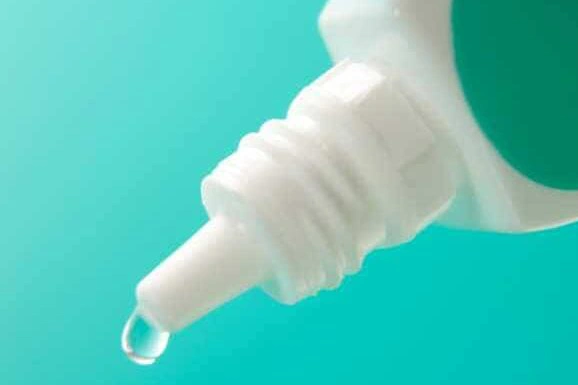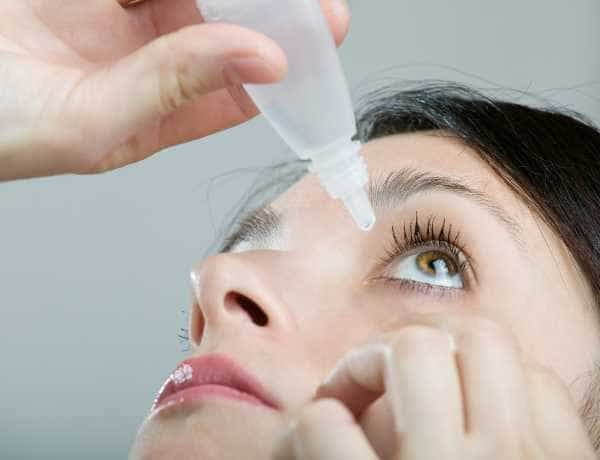
Eye drops are a common remedy for people suffering from dry eyes. These artificial tears are often marketed as safe and effective for relieving dryness and eye irritation. However, recent studies have linked the use of certain eye drops to serious health problems, including cancer and blindness, and another result to physical abuse in nursing homes when victims seek medication. As a result, many patients have filed lawsuits against the manufacturers of these products. This article discusses the dangers associated with artificial tears and what patients should do if they have experienced adverse effects.
The U.S. Food and Drug Administration, in cooperation with the Center for Disease Control, state, and local health departments, has identified a connection between 55 reported cases of Pseudomonas aeruginosa bacteria across 12 states and the use of EzriCare or Delsam Pharma's Artificial Tears eye drop products.
This strain of the bacteria is antibiotic-resistant and can lead to serious infections or death if not treated adequately.
On February 2nd, 2023, Global Pharma Healthcare initiated a voluntary recall due to the FDA's findings of CGMP violations, including:

Tests have revealed the presence of Pseudomonas aeruginosa in artificial tears produced by Global Pharma, prompting consumer worries. If this bacteria is present in the eyes, it can lead to severe infections. This bacteria is known for its antibiotic resistance, making it difficult to treat. It can cause eye infections or vision loss.
Individuals affected by the FDA eye drop recall should seek medical attention immediately and contact a legal professional regarding their rights.
It is essential to review the National Drug Code (NDC) and Universal Product Code (UPC) of the eye drop bottle purchased to ensure it is not a recalled item. The bottle was sealed with a safety seal. The NDC and UPC can be found on the outside of the box. These numbers are individual identifiers for medication products.
If you have used eye drops that match the assigned NDCs and UPCs and encountered an infection, it is advised to seek legal advice. FDA recall cases are usually time-sensitive.
Pseudomonas aeruginosa is a gram-negative, opportunistic human pathogen that can cause pneumonia. It is an environmental bacteria and uncommonly causes community infections. This organism has been associated with severe patient infections in the medical field. This bacteria is versatile and can thrive in various atmospheres with little oxygen, threatening humans with weakened immune systems or damaged tissue.
Pseudomonas aeruginosa infections in the eye can lead to permanent vision damage. Reports suggest this is being seen with EzriCare. Individuals with reduced immunity, recent eye surgery, or a history of ocular infection are more likely to contract an infection. Those wearing contact lenses may be especially susceptible if they do not adhere to proper hygiene and cleaning guidelines.
Individuals who used Ezricare Artificial Tears and are found to have a bacterial infection may be eligible for financial compensation due to a product recall. Class Action lawsuits are intended to hold manufacturers accountable for injuries resulting from their products, providing consumers with an avenue to seek reparations for sustained harm. File a FREE claim with Class Action 101 today.
Suppose you or someone close to you have experienced bacterial infections related to EzriCare or Delsam Pharma's recalled eye drops. Consulting with an attorney specializing in FDA eye drop recall cases is advisable. File a claim with Class Action 101 today.
Compensation in a product liability case can vary greatly, depending on the damages. Generally, compensation is awarded for medical expenses related to injury or death, as well as property damage and/or any wages lost due to inability to work. Punitive damages may also be awarded in extreme cases if there was malicious intent on behalf of the responsible party. Oftentimes, award amounts can include future wages and diminished earning capacity. Additionally, emotional distress awards are sometimes granted. It is important to note that these cases are not easy to prove, so seeking legal help is highly recommended.
Most Product Liability lawyers work contingency basis for personal injury claims.A contingency fee basis means we do not charge you anything unless we win a settlement in or out of court. This fee structure ensures we work hard for your case and that you don't have even more out-of-pocket expenses during a stressful time.
An EzriCare lawsuit can be filed by any person or family who has suffered harm or injury due to the negligence of an EzriCare medical provider.
To file an EzriCare Eye Drops Lawsuit, you must have experienced an adverse reaction to the drug after using it as directed. Adverse reactions can include pain, swelling, redness, or vision loss. Before filing a lawsuit, it’s essential to consult with a medical professional who can check for signs and symptoms of complications after the use of EzriCare Eye Drops. This consultation is necessary to connect any potential adverse side effects with the use of the drug and will be needed when submitting any legal paperwork.
You can pursue many types of damages after a product has harmed you. Some of those are:
Economic damages are losses that arise from an injury or harm to another’s property, business, or finances. Economic damages include:
Non-economic damages are types of damages in personal injury cases that cannot be quantified or measured. These include:
Punitive damages are a type of legal damages that a court will award to punish the wrongdoer for egregious misconduct or to set an example for other potential violators. They are generally in addition to any other compensatory damages that were awarded.
Special damages, also known as consequential damages, do not occur directly from a breach but are considered a consequence of that breach. They include economic losses such as lost profits or the cost of repair or replacement. They may also include other losses, such as emotional distress due to the breach.
The length of a product liability case can vary greatly, depending on the complexity of the issues involved and the state in which it is being litigated. On average, cases take approximately a year to two or three years to be resolved.
If the products have impacted you in this recall, contact Class Action 101 for a FREE consultation.